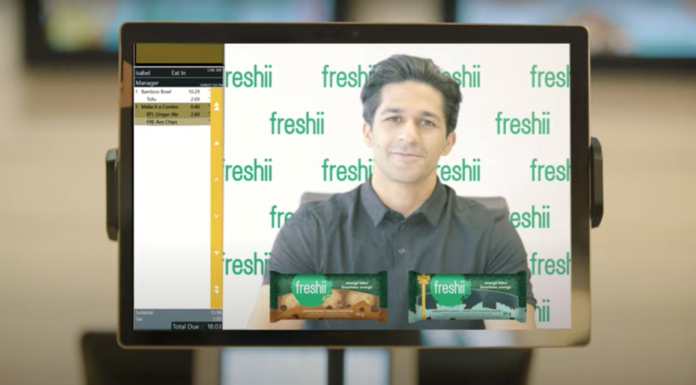(Patrick Carroll, Foundation for Economic Education) A new start-up called Percy is based on a simple yet revolutionary idea: virtual cashiers.
Essentially, a video calling device is set up at the cash register of your local restaurant or shop. When you want to buy something, you are connected with someone in a remote location, sometimes thousands of miles away, and they take your order. That way, if a store is having trouble finding local workers, or if staff members call in sick, stores can simply outsource the cashier job, often at a fraction of the cost.
Sounds brilliant, right?
The founders of Percy certainly think so. CEO Matthew Corrin and his co-founders Angela Argo and Ali Aqueel have been working on this project for months after initially trying it out at their Canadian restaurant company Freshii.
“The pandemic created this mass exodus of workers in the restaurant industry,” said Argo in a recent interview. “It made us start thinking about what roles in a restaurant can be done without a human being physically present. How can a restaurant owner capitalize on the virtual world?”
“The demand for fast-food workers far outweighs supply right now,” Argo continued. “You can look on Indeed.ca and you’ll see for yourself that everyone is offering more than minimum wage for restaurant workers — and they still can’t get staff.”
Percy’s track record so far is making a good case that Argo is on to something. The company already has more than a dozen clients in North America, including several fast-food chains.
“We’re growing quickly,” said Argo. “We tried [Percy] out at a few Freshii locations, and the response from restaurant owners, again and again, was: ‘this is a lifesaver.’”
But while restaurant owners may be celebrating, not everyone is thrilled about this new idea. Labor activists in particular have taken issue with the low wages being offered to workers in developing countries. The company currently employs about 100 workers in Nicaragua, Pakistan, and Bolivia, and a recent investigation revealed that some of the Nicaraguan workers are paid as little as $3.75 USD an hour. By comparison, an Ontario worker is guaranteed a minimum wage of $15 CAD an hour (~$11.43 USD).
“This … moves entirely in the wrong direction,” said Ontario labor minister Monte McNaughton in April. “I expect better from a Toronto-based company and know customers will vote with their feet.”
“They can keep their outsourcing jobs pilot project away from our province,” said British Columbia’s labor minister Harry Bains in a tweet.
Retail analyst and author Bruce Winder also had harsh words for the company.
“It’s in-your-face capitalism,” said Winder. “It reminds the customer, while they’re ordering food, that the company is taking away a live person and replacing them with a video of someone earning much less money.”



